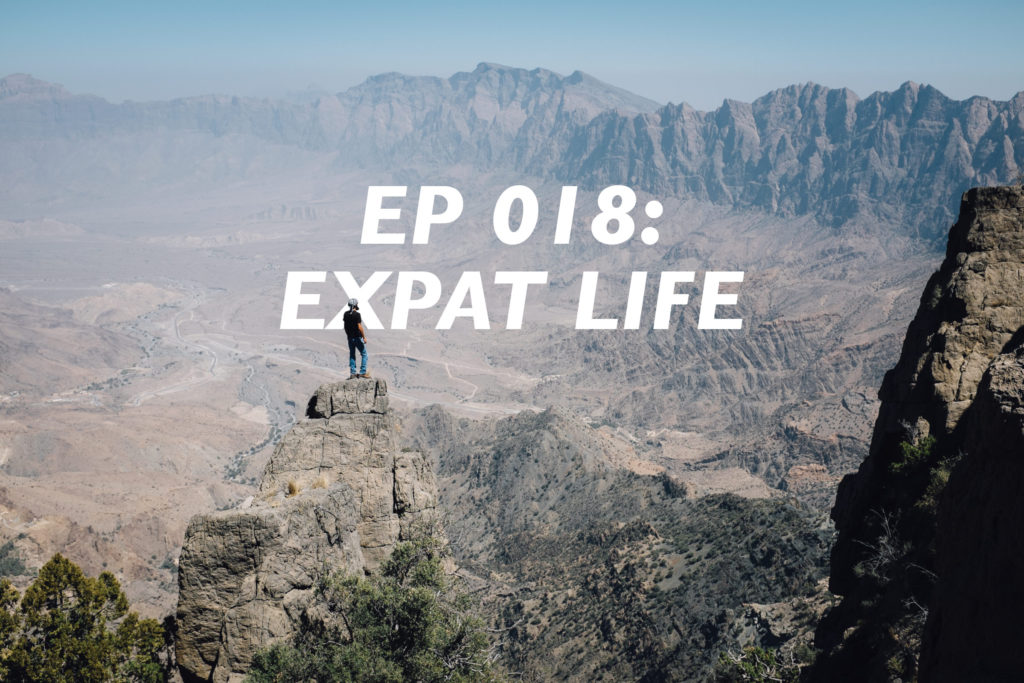 [iframe style=”border:none” src=”http://html5-player.libsyn.com/embed/episode/id/5509761/height/60/width/650/thumbnail/no/render-playlist/no/theme/standard” height=”60″ width=”100%” scrolling=”no” allowfullscreen webkitallowfullscreen mozallowfullscreen oallowfullscreen msallowfullscreen]
[iframe style=”border:none” src=”http://html5-player.libsyn.com/embed/episode/id/5509761/height/60/width/650/thumbnail/no/render-playlist/no/theme/standard” height=”60″ width=”100%” scrolling=”no” allowfullscreen webkitallowfullscreen mozallowfullscreen oallowfullscreen msallowfullscreen]
Living and working in Oman has its many positive qualities. The expat life is diverse with outdoor activities and the beautiful landscape clearly at the top of the list. However, there are others things to consider if you are job hunting in Oman.
 In this episode of the Sultanate I sit down with my mate Jonty Baulk to discuss what it is like living and working in Oman. We cover topics like jobs, working culture, working hours, recreation, salaries, packages, the Oman Labour Law, and the Omanization. Our conversation starts off in my recording studio at my super secret location, but we finish the discussion in typical expat fashion; over a pint of cold beer at the local watering hole.
In this episode of the Sultanate I sit down with my mate Jonty Baulk to discuss what it is like living and working in Oman. We cover topics like jobs, working culture, working hours, recreation, salaries, packages, the Oman Labour Law, and the Omanization. Our conversation starts off in my recording studio at my super secret location, but we finish the discussion in typical expat fashion; over a pint of cold beer at the local watering hole.
NOC
There is another topic I want to cover that is on my notes but didn’t get discussed in the recording, probably because it’s kind of political, and that is not the goal of this website. However, it is important nonetheless. This topic is regarding the No Objection Certificate (NOC).
As of July 2014, a NOC is required from your employer if you want to change jobs as an expat in Oman. It is designed to protect companies who invest significant cash to bring an expatriate worker to Oman. If you do not have a NOC you will not be allowed to join another company in Oman, and you must stay out of the country for two years. In the past some unscrupulous workers would use a new employer to enter the country, then quickly quit for another better position. For this reason the NOC rule makes sense.
The law, however, doesn’t distinguish new employees from long-time workers. No matter what, a NOC is required to join another company.
The challenge with the NOC is its tie to a company’s employment visa quota. If a company issues a NOC to an employee, they will loose one opening to bring another expat worker into the country.
This effectively stops companies from issuing NOCs or companies asking their employees to pay large sums of money in return. For many expats they feel stuck in their current positions, or must leave the country at the end of their contract.
There are three global impacts from the NOC rule. The first is many expats are deciding not to leave their jobs because they want to stay in Oman to be near their friends and families. So, jobs that would naturally open to the market are not doing so. The second result has to do with regional competition and foreign investment. Basically other GCC nations are not employing a NOC rule, so Oman becomes less attractive to skilled expatriates and companies who want to invest in the sultanate. Finally, the World Economic Forum lowered Oman 4 places on the Global Competitiveness Index in what is believed to be a response to the NOC rule.
The NOC rule is something you should be aware about, and how it affects expat life. However, changes to the system are likely coming. You can read more about the NOC rule here at this article.
Sultanate Ep 018: Expat Life Links
- Jonty’s previous appearances on the Sultanate, Ep 001, Ep 004, Ep 009
- Oman Labour Law
- Oman InterNations
- Ras al Hamra Recreation Centre
- The Lazy Lizard
- 13 Ways to Beat the Heat in Oman
[table id=8 /]




No Comments